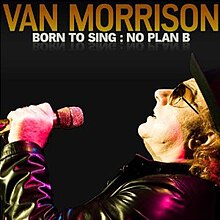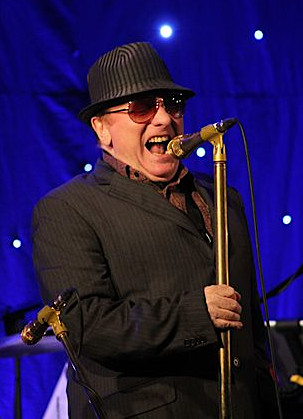
Sir George Ivan MorrisonOBE is a Northern Irish singer-songwriter and musician whose recording career started in the 1960s.

Moondance is the third studio album by Northern Irish singer-songwriter Van Morrison. It was released on 27 January 1970 by Warner Bros. Records. After the commercial failure of his first Warner Bros. album Astral Weeks (1968), Morrison moved to upstate New York with his wife and began writing songs for Moondance. There, he met the musicians that would record the album with him at New York City's A & R Studios in August and September 1969.

Astral Weeks is the second studio album by Northern Irish singer-songwriter Van Morrison. It was recorded at Century Sound Studios in New York during September and October 1968, and released in November of the same year by Warner Bros. Records.
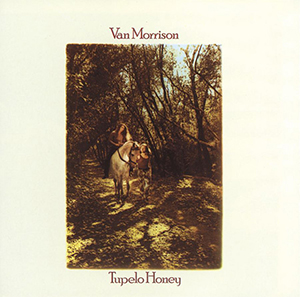
Tupelo Honey is the fifth studio album by Northern Irish singer-songwriter Van Morrison. It was released in October 1971 by Warner Bros. Records. Morrison had written all of the songs in Woodstock, New York, before his move to Marin County, California, except for "You're My Woman", which he wrote during the recording sessions. Recording began at the beginning of the second quarter of 1971 at Wally Heider Studios in San Francisco. Morrison moved to the Columbia Studios in May 1971 to complete the album.

His Band and the Street Choir is the fourth studio album by Northern Irish singer-songwriter Van Morrison. It was released in November 1970 by Warner Bros. Records. Originally titled Virgo's Fool, Street Choir was renamed by Warner Bros. without Morrison's consent. Recording began in early 1970 with a demo session in a small church in Woodstock, New York. Morrison booked the A&R Studios on 46th Street in New York City in the second quarter of 1970 to produce two sessions of songs that were released on His Band and the Street Choir.
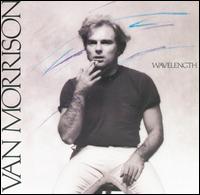
Wavelength is the tenth studio album by Northern Irish singer-songwriter Van Morrison, and was released in the autumn of 1978. The album has a different musical sound from his previous albums, leaning towards a pop rock sound with prominent electric guitars and synthesizers. Wavelength was Morrison's best selling album at the time of the original release. Mick Glossop, Bobby Tench and Peter Bardens were given credit for special assistance in production.

Beautiful Vision is the thirteenth studio album by Northern Irish singer-songwriter Van Morrison, released in February 1982. It continued Morrison's departure from R&B at the time, instead favoring Celtic folk and American jazz in its music. As with many of Morrison's recordings, spirituality is a major theme and some of the songs are based on the teachings of Alice Bailey. Other songs show Morrison's Celtic heritage and reminiscence of his Belfast background.

The eighteenth studio album Irish Heartbeat by Northern Irish singer-songwriter Van Morrison is a collaboration with the traditional Irish musical group the Chieftains, released in 1988. It was recorded at Windmill Lane Studios in Dublin, Ireland, and reached number 18 in the UK album charts.

The Healing Game is the twenty-sixth studio album by Northern Irish singer-songwriter Van Morrison, released in 1997 by Polydor. It reached the Top Ten in four countries, and the Top Twenty in three more. Following two overtly jazz albums, it saw Morrison adding blues and a pop sensibility. It is the only album recorded after 1980 which Rolling Stone judged to be among his ten best, calling it "a clear highlight of his mid-period discography".
"Into the Mystic" is a song written by Northern Irish singer-songwriter Van Morrison and featured on his 1970 album Moondance. It was also included on Morrison's 1974 live album, It's Too Late to Stop Now.
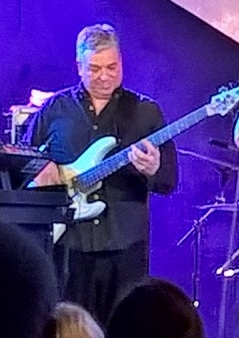
Laurence Cottle is a Welsh bass guitarist and composer.
"It's All Over Now, Baby Blue" is a song written and performed by Bob Dylan and featured on his Bringing It All Back Home album, released on March 22, 1965, by Columbia Records. The song was recorded on January 15, 1965, with Dylan's acoustic guitar and harmonica and William E. Lee's bass guitar the only instrumentation. The lyrics were heavily influenced by Symbolist poetry and bid farewell to the titular "Baby Blue". There has been much speculation about the real life identity of "Baby Blue", with possibilities including Joan Baez, David Blue, Paul Clayton, Dylan's folk music audience, and even Dylan himself.

"Moondance" is a song recorded by Northern Irish singer and songwriter Van Morrison and is the title song on his third studio album Moondance (1970). It was written by Morrison, and produced by Morrison and Lewis Merenstein.
"Cyprus Avenue" is a song written by Northern Irish singer-songwriter Van Morrison and included on his 1968 album Astral Weeks. It refers to Cyprus Avenue, a residential street in Morrison's hometown of Belfast, Northern Ireland.

"Crazy Love" is a romantic ballad written by Northern Irish singer-songwriter Van Morrison and included on his 1970 album, Moondance. The song was originally released as the B-side to "Come Running" in May 1970 before it was released as a single in the Netherlands, "Come Running" as the B-side. The cover of the single shows Morrison with his then-wife, Janet "Planet" Rigsbee. The photograph was taken by Elliot Landy, the official photographer of the 1969 Woodstock festival.
"Saint Dominic's Preview" is the title song of the sixth album by Northern Irish singer-songwriter Van Morrison, released in July 1972 by Warner Bros. It was recorded at the Wally Heider Studios in San Francisco in April 1972, with overdubs made later on. Morrison wrote it in a stream of consciousness in the same vein as some of his earlier works, particularly those on Astral Weeks. The song's narrative moves from France to San Francisco, Morrison's place of residence at the time, to Belfast, where he grew up, to New York City.
"Sweet Thing" is a song by Northern Irish singer-songwriter Van Morrison, released on his second studio album Astral Weeks (1968). It was on the first side of the album, that was under the heading: In the Beginning. The song was later used in 1971 as the American B-side to Morrison's single "Blue Money".
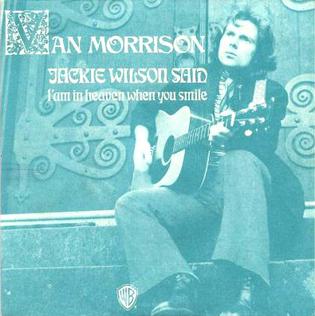
"Jackie Wilson Said (I'm in Heaven When You Smile)" is a song written and performed by Van Morrison and featured as the opening track on his sixth studio album, Saint Dominic's Preview. It was released by Warner Bros. in July 1972 as the first of three singles from the album and charted at number sixty-one on the US Billboard Hot 100. Both the music and lyrics are inspired by rhythm and blues singer Jackie Wilson and his song "Reet Petite", which is directly quoted in the song.
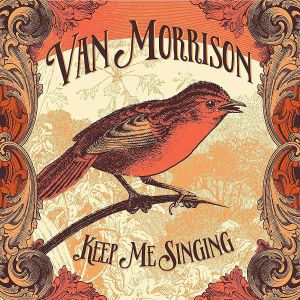
Keep Me Singing is the 36th studio album by Northern Irish singer-songwriter Van Morrison, released on 30 September 2016 by Caroline Records. It is Morrison's highest-charting album in the US, and third US Top 10 album, following the success of Keep It Simple (2008) and Born to Sing: No Plan B (2012).

Roll with the Punches is the 37th studio album by Northern Irish singer-songwriter Van Morrison, released on 22 September 2017 by Caroline Records. It features Jeff Beck on guitar, and charted in the Top 10 in five countries, and the Top 40 in a further six, including the US.
